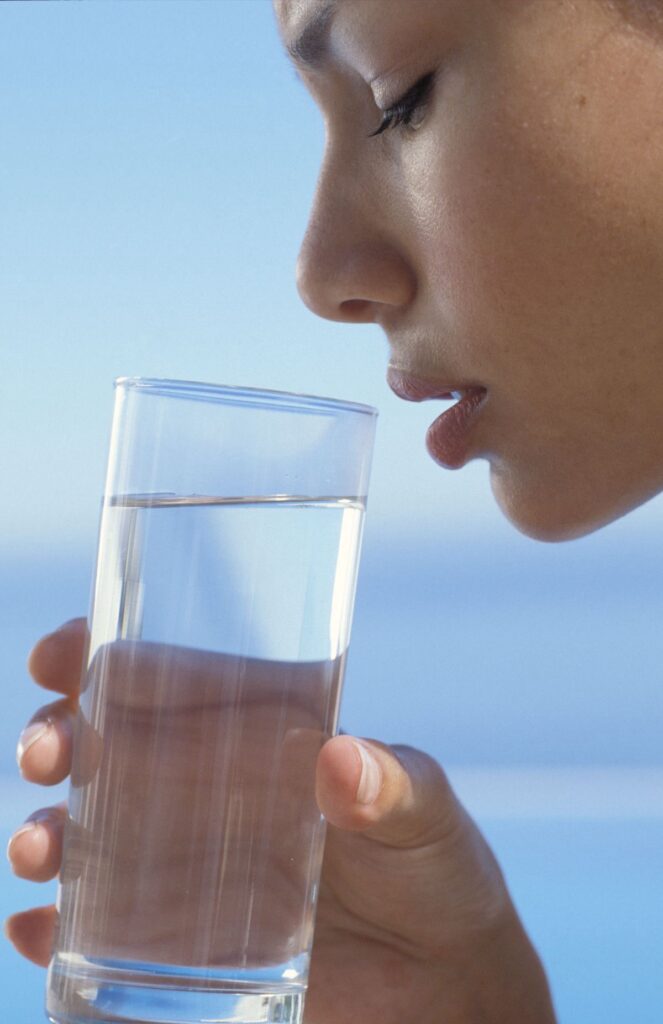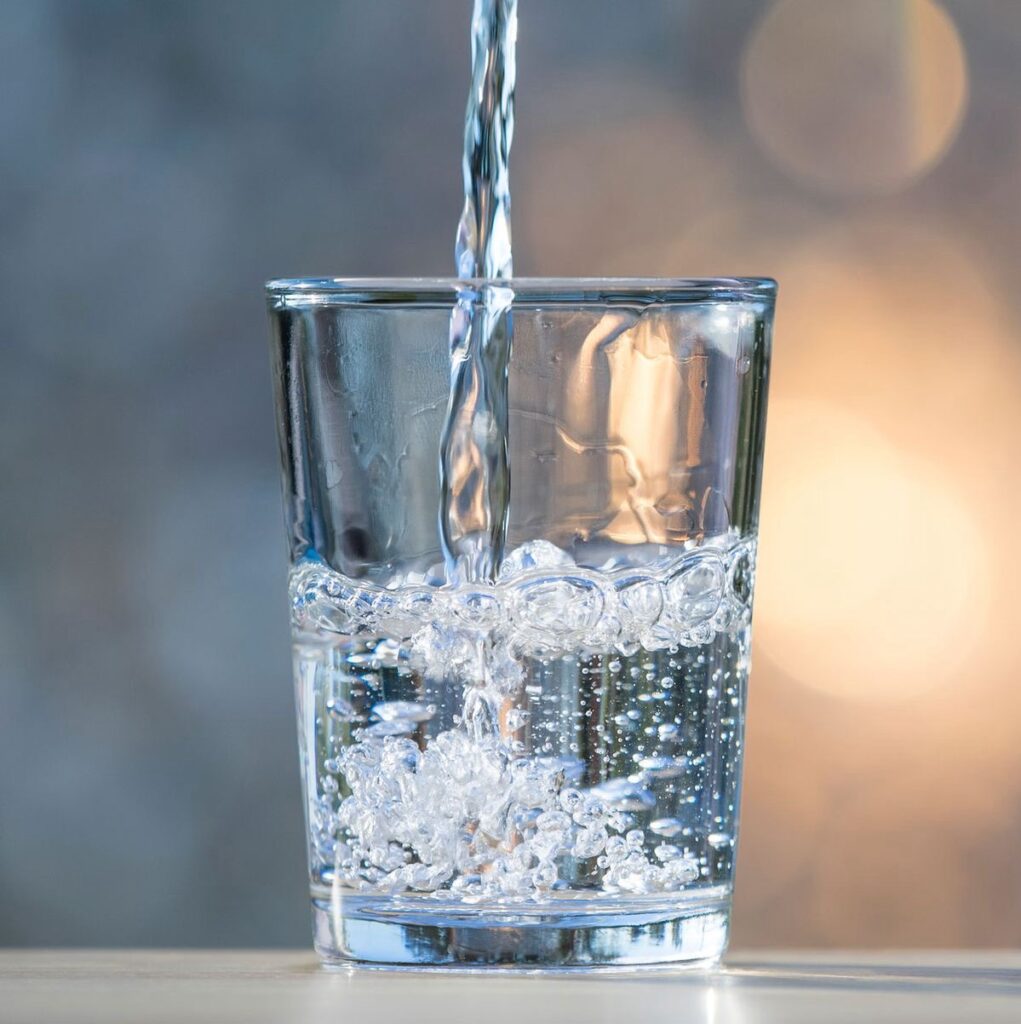Water is the essence of life. It covers approximately 71% of our planet’s surface and constitutes around 60% of the human body, highlighting its indispensable role in sustaining life. Despite its ubiquity, the importance of proper hydration often gets overlooked in our daily routines. Understanding the vital role of water, its benefits, and the consequences of dehydration can motivate us to prioritize our daily water intake, ultimately improving our overall well-being.

The Science Behind Water and the Human Body
Water is involved in nearly every physiological process in the human body. It serves as a building block for cells, facilitates digestion, regulates temperature, and acts as a lubricant for joints. Additionally, water is essential for the transportation of nutrients and the elimination of waste products. Given these critical functions, maintaining an adequate daily intake of water is necessary for optimal health.
Cellular Function
Every cell in the human body relies on water to function properly. Water is the medium through which nutrients enter cells and waste products are removed. It also plays a crucial role in cellular metabolism, the set of chemical reactions that provide energy and build the materials needed for growth, repair, and maintenance.
Temperature Regulation
One of water’s most vital roles is in temperature regulation. The human body maintains a stable internal temperature through a process called thermoregulation. When we get too hot, the body releases water in the form of sweat. As sweat evaporates from the skin’s surface, it cools the body down. This mechanism is critical during exercise, hot weather, or any situation that raises body temperature.
Digestion and Nutrient Absorption
Water is essential for the digestive system to function properly. It helps break down food so that nutrients can be absorbed into the bloodstream. Water also keeps the digestive tract moist, aiding in the smooth passage of food through the intestines. Without sufficient water, digestion slows down, leading to constipation and other digestive issues.
Joint Lubrication and Cushioning
The joints in our body are cushioned by synovial fluid, a water-based substance that reduces friction and allows smooth movement. Proper hydration ensures that joints remain well-lubricated, reducing the risk of joint pain and injury, particularly during physical activity.
How Much Water Do You Need Daily?
Determining how much water one should drink daily isn’t always straightforward, as it can vary based on individual factors like age, weight, activity level, and environmental conditions. However, general guidelines provide a useful starting point.
The 8×8 Rule
One of the most commonly cited recommendations is the “8×8 rule,” which suggests drinking eight 8-ounce glasses of water per day, totaling about 2 liters or half a gallon. While easy to remember, this rule is more of a general guideline rather than a one-size-fits-all prescription.
Institute of Medicine Guidelines
The National Academies of Sciences, Engineering, and Medicine provides more specific recommendations. They suggest a daily water intake of about 3.7 liters (125 ounces) for men and 2.7 liters (91 ounces) for women. These recommendations include all fluids consumed, not just water, and also account for water obtained from food.
Adjusting for Activity and Environment
Your water needs can increase significantly depending on your level of physical activity and the environment in which you live. For example, people who exercise regularly or live in hot, humid climates may require more water to compensate for the fluid lost through sweat. In such cases, it’s essential to listen to your body and drink more when you feel thirsty.

Signs of Dehydration
Dehydration occurs when the body loses more water than it takes in. Even mild dehydration can cause various symptoms, affecting both physical and mental performance.
Early Signs of Dehydration
- Thirst: The most obvious sign that your body needs more water.
- Dry Mouth and Lips: A lack of saliva can lead to a dry, sticky mouth and cracked lips.
- Dark Urine: Urine that is darker in color, rather than pale yellow, is a common indicator of dehydration.
- Fatigue: Dehydration can lead to low energy levels and feelings of tiredness.
- Headache: Even mild dehydration can cause headaches, which may worsen if fluid intake is not increased.
Severe Dehydration
If dehydration becomes severe, it can lead to more serious health problems, such as:
- Dizziness or Lightheadedness: As blood volume decreases, blood pressure can drop, leading to dizziness or fainting.
- Rapid Heartbeat: Dehydration forces the heart to work harder to pump blood, leading to an increased heart rate.
- Confusion: Severe dehydration can affect cognitive function, leading to confusion or disorientation.
- Heat Stroke: In extreme cases, particularly during intense exercise in hot weather, dehydration can lead to heat stroke, a life-threatening condition.
The Benefits of Staying Hydrated
Staying properly hydrated offers numerous benefits that go beyond just preventing dehydration. Here are some of the key advantages:
Enhanced Physical Performance
Water is essential for maintaining peak physical performance. During exercise, dehydration can impair strength, endurance, and coordination, increasing the risk of injury. Staying hydrated helps maintain blood volume, regulate body temperature, and prevent muscle cramps, allowing for better performance and faster recovery.
Improved Cognitive Function
Even mild dehydration can have a significant impact on brain function. Studies have shown that dehydration can impair concentration, short-term memory, and mood. Drinking enough water helps keep the brain functioning optimally, improving focus, mental clarity, and overall cognitive performance.
Better Digestion
Adequate water intake aids digestion by helping to break down food and ensuring the smooth movement of waste through the digestive tract. Proper hydration can prevent constipation and reduce the risk of digestive disorders such as acid reflux and irritable bowel syndrome (IBS).
Healthier Skin
Water plays a crucial role in maintaining skin health. It helps keep the skin hydrated, improving elasticity and reducing the appearance of fine lines and wrinkles. Proper hydration also supports the skin’s natural barrier function, helping to prevent dryness, irritation, and acne.
Weight Management
Drinking water can be a useful tool for weight management. Water is calorie-free, and drinking it before meals can help reduce appetite, leading to lower calorie intake. Additionally, staying hydrated can boost metabolism and support the body’s natural fat-burning processes.
Practical Tips for Staying Hydrated
Maintaining proper hydration throughout the day doesn’t have to be challenging. Here are some practical tips to help you stay hydrated:
Start Your Day with Water
After a night of sleep, your body is naturally dehydrated. Start your day by drinking a glass of water to replenish fluids and kick-start your metabolism.
Carry a Water Bottle
Keep a reusable water bottle with you throughout the day as a reminder to drink regularly. This is especially helpful when you’re on the go or at work.
Infuse Your Water
If plain water feels too boring, try infusing it with fruits, herbs, or vegetables like lemon, cucumber, or mint. This can add a refreshing flavor without adding calories.
Eat Water-Rich Foods
Incorporate water-rich foods like fruits and vegetables into your diet. Cucumbers, oranges, watermelon, and strawberries are excellent choices that can contribute to your daily water intake.
Set Reminders
Use smartphone apps or set reminders to prompt you to drink water at regular intervals, especially if you tend to forget.
Listen to Your Body
Pay attention to your body’s signals. If you’re feeling thirsty, tired, or notice any signs of dehydration, it’s a clear indication that you need more water.
Myths and Misconceptions About Hydration
Despite the well-known importance of staying hydrated, several myths and misconceptions persist about water intake. Here, we debunk some of the most common ones:
Myth 1: You Need to Drink Exactly 8 Glasses of Water a Day
While the “8×8” rule is a convenient guideline, it’s not a hard and fast rule for everyone. Your actual water needs depend on various factors, including your age, activity level, and the climate in which you live.
Myth 2: Caffeinated Beverages Cause Dehydration
It’s a common belief that drinks like coffee and tea are dehydrating because they contain caffeine, a diuretic. However, research shows that the water content in these beverages can still contribute to your daily hydration needs, as the diuretic effect is mild.
Myth 3: Thirst Is the Only Sign of Dehydration
Thirst is indeed a sign that your body needs more water, but it’s not the only one. As mentioned earlier, fatigue, dry skin, dark urine, and headaches can also indicate dehydration, often before you even feel thirsty.
Myth 4: Drinking More Water Will Automatically Improve Skin Health
While staying hydrated is beneficial for your skin, it’s not a cure-all for skin issues. Factors like diet, skincare routine, and overall health also play significant roles in skin appearance.
Conclusion: Making Hydration a Daily Habit
Water is fundamental to our health, influencing everything from energy levels to skin condition. Understanding its vital role in our bodies highlights the importance of staying properly hydrated each day. By paying attention to our body’s signals and incorporating simple habits—like drinking water regularly and eating water-rich foods—we can effortlessly integrate hydration into our daily routine.
Making hydration a priority is a small but impactful step toward enhancing physical performance, mental clarity, digestion, and overall well-being. As you navigate your daily life, remember that maintaining adequate water intake is one of the most accessible and effective ways to support your health. So, keep that water bottle handy, listen to your body, and let hydration be the foundation of your wellness journey.